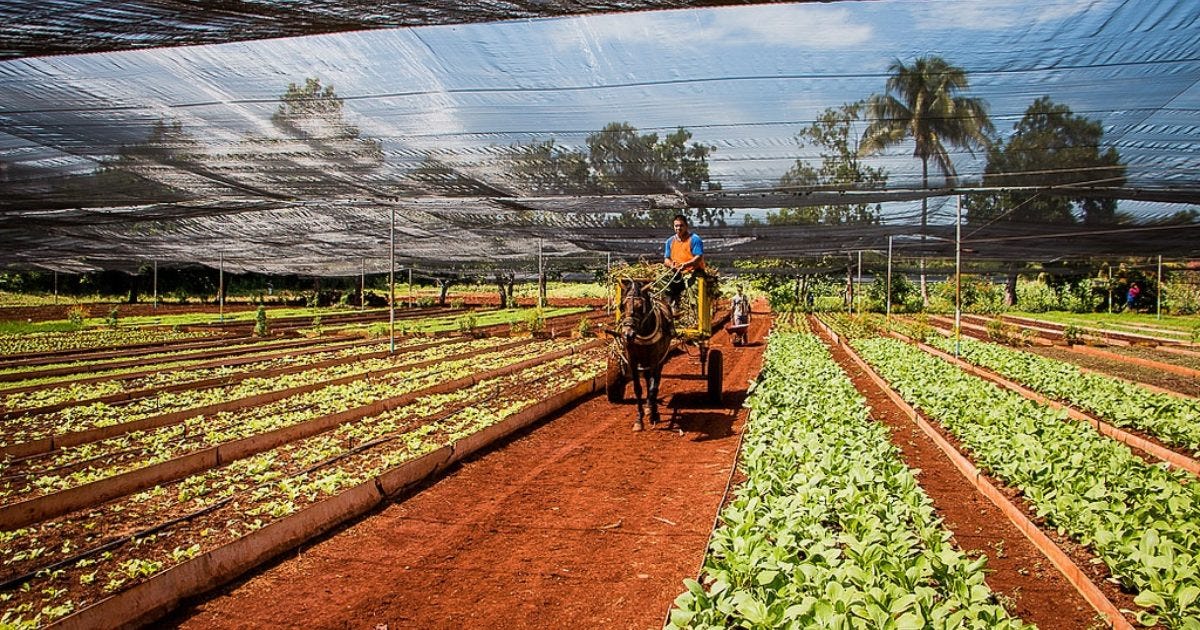The Launch Of Permaculture For Palestine
In the wake of the tentative ceasefire between Israel and Hamas, the initiative "Permaculture for Palestine" aims to assist in rebuilding efforts by drawing parallels to Cuba's successful use of permaculture to revitalize its food systems during the Special Period.
Cuba's Experience with Permaculture
Following the collapse of the Soviet Union in the early 1990s, Cuba faced severe shortages of food, fuel, and agricultural inputs, leading to a nationwide crisis known as the Special Period. In response, the Cuban government and citizens adopted permaculture and urban agriculture to enhance food security. Urban gardens, known as "organopónicos," were established in vacant lots, utilizing organic methods due to the scarcity of chemical fertilizers and pesticides. These community-driven efforts transformed urban spaces into productive agricultural areas, significantly contributing to local food availability.
Permaculture Initiatives in Palestine
Palestine has seen the emergence of permaculture projects aimed at promoting sustainable agriculture and food sovereignty under challenging conditions. The Marda Permaculture Farm, established in 2006 in the West Bank, serves as a model of sustainable development, blending traditional farming methods with modern permaculture techniques. It offers workshops for local farmers and international students, fostering a community-centered approach to agriculture.
Similarly, the Maan Permaculture Center in Beit Qad functions as an agricultural extension service, combining affordable modern techniques with traditional practices. The center conducts experiments on high-nutritional-value crops and provides training in areas such as water harvesting and recycling, aiming to build resilient local economies. We are not certain of the current status of this centre as their main website is unreachable.
Comparative Insights and Potential Applications
Both Cuba and Palestine have leveraged permaculture to address food security challenges, though their contexts differ. Cuba's transition to permaculture was a nationwide response to economic isolation, supported by government policies that facilitated urban agriculture and decentralized food production. In contrast, Palestinian permaculture initiatives often operate under occupation-related constraints, focusing on community resilience and self-sufficiency. This article speaks to Urban Farming in Cuba.
Permaculture For Palestine Possibilities
"Permaculture for Palestine" can draw lessons from Cuba's experience by:
- Promoting Urban Agriculture: Encouraging the use of available urban spaces for food production can enhance local food security, similar to Cuba's organopónicos.
- Community Training Programs: Implementing educational workshops to disseminate permaculture principles can empower communities to adopt sustainable practices, as seen in Cuban urban farming initiatives.
- Resource Optimization: Utilizing locally available materials and organic waste for composting and soil enhancement can mitigate the scarcity of agricultural inputs, a strategy effectively employed in Cuba.
By adapting these strategies to the unique socio-political context of Palestine, "Permaculture for Palestine" can contribute to rebuilding efforts, fostering sustainable agriculture, and strengthening community resilience.
Seeds For Peace For Palestine
The Cascadia Seed Guild has a permanent seed exchange at Eugene Backyard Farmer in Eugene Oregon.
Here is a list of seeds we are looking to send to Palestine, if you have any of these, please feel free to drop them into Eugene Backyard Farmer in any form as we will be sorting and re packing them.
1. Staple Crops (Grains and Legumes)
These are foundational crops for food security, providing calories, protein, and soil improvement.
Fava Beans (Vicia faba): Hardy nitrogen-fixing legume, traditional to the region.
Chickpeas (Cicer arietinum): Drought-tolerant, protein-rich legume.
Lentils (Lens culinaris): Grow well in dry soils, another protein source.
Barley (Hordeum vulgare): Heat-tolerant, can be used for food and livestock.
Wheat (Triticum spp.): Traditional grain for bread, thrives in the region.
2. Vegetables
These provide vitamins, minerals, and diversity to diets.
Tomatoes (Solanum lycopersicum): Varieties suited for hot, dry climates like cherry tomatoes.
Cucumbers (Cucumis sativus): Heat-tolerant varieties for fresh eating and pickling.
Eggplants (Solanum melongena): Particularly Mediterranean varieties.
Zucchini/Summer Squash (Cucurbita pepo): Fast-growing and highly productive.
Okra (Abelmoschus esculentus): Heat- and drought-tolerant.
Peppers (Capsicum spp.): Sweet and hot varieties for culinary use.
3. Leafy Greens and Herbs
For nutrition and culinary diversity.
Chard (Beta vulgaris subsp. cicla): Drought-tolerant leafy green.
Spinach (Spinacia oleracea): Winter crop.
Arugula (Eruca sativa): Fast-growing leafy green.
Parsley (Petroselinum crispum): Mediterranean staple.
Coriander/Cilantro (Coriandrum sativum): Dual-purpose leaves and seeds.
Mint (Mentha spp.): Widely used in teas and dishes.
4. Root Crops
These store well and are a traditional part of Middle Eastern cuisine.
Carrots (Daucus carota): Heat-tolerant varieties.
Radishes (Raphanus sativus): Quick-growing and suitable for intercropping.
Onions (Allium cepa): Long-day varieties for Mediterranean climates.
Garlic (Allium sativum): Thrives in mild winters.
Beets (Beta vulgaris): Can tolerate a range of soils.
5. Perennials and Trees
For long-term food production and environmental benefits.
Olive Trees (Olea europaea): Iconic crop, culturally and economically vital.
Fig Trees (Ficus carica): Drought-resistant, productive fruit tree.
Pomegranate Trees (Punica granatum): Thrive in arid climates.
Date Palms (Phoenix dactylifera): Traditional and drought-tolerant.
Grapes (Vitis vinifera): Heat-loving vines for fresh fruit or drying.
6. Cover Crops and Soil Builders
To restore soil fertility and prevent erosion.
Alfalfa (Medicago sativa): Nitrogen-fixing and used as forage.
Clover (Trifolium spp.): Excellent nitrogen fixer.
Fenugreek (Trigonella foenum-graecum): Medicinal and improves soil.
7. Medicinal and Culinary Herbs
To support health and traditional practices.
Thyme (Thymus spp.): Essential in za'atar blends.
Oregano (Origanum vulgare): Traditional Mediterranean herb.
Sage (Salvia officinalis): Drought-tolerant and medicinal.
Chamomile (Matricaria chamomilla): Used in teas and medicinal remedies.
8. Native or Climate-Adapted Crops
To encourage resilience and biodiversity.
Watermelon (Citrullus lanatus): Heat- and drought-adapted.
Melons (Cucumis melo): Thrives in hot climates.
Amaranth (Amaranthus spp.): Heat-tolerant leafy green and grain.






Love This!...